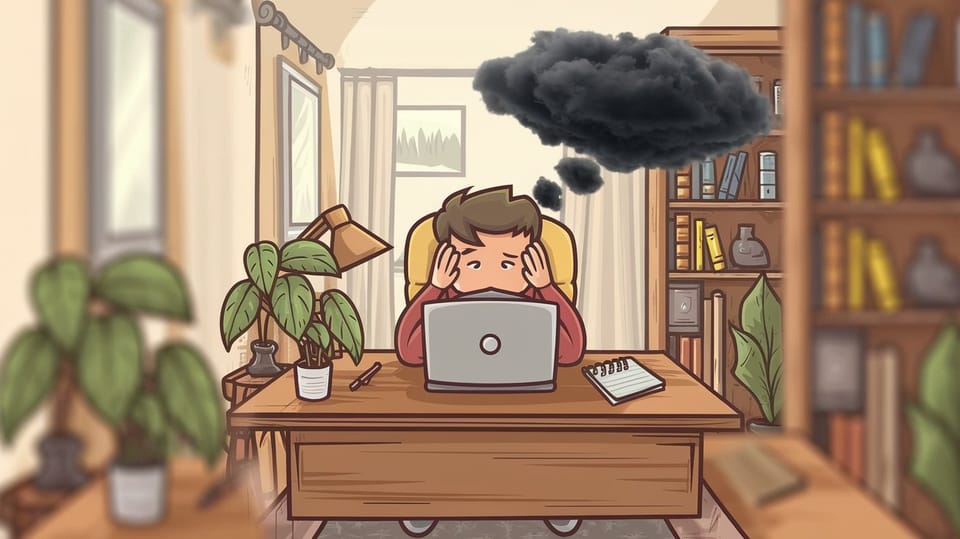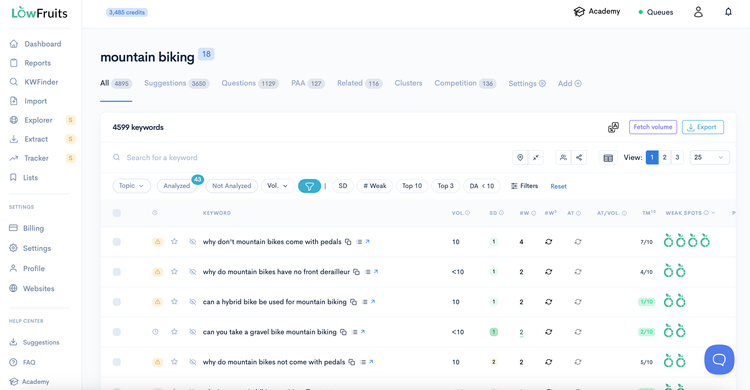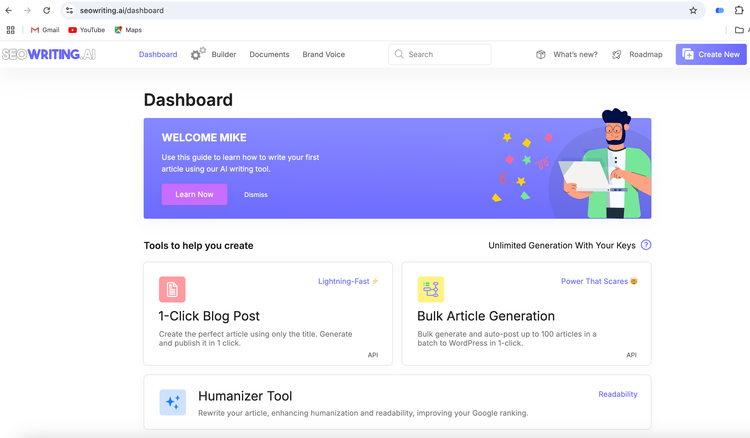The Disadvantages of Blogging: What You Should Know

Before you start a blog you definitely want to think about a few things that might be considered downsides. Blogging isn't always as simple as it looks. And truthfully, many new bloggers can find it frustrating for a variety of reasons.
In reality, blogging can be different from what people expect. The need for always coming up with new content coupled with SEO and technical skills needed can bring on it's own set of challenges.
In this article I look at some of the hurdles new bloggers will face. For example, understanding search engine optimization issues, the time it takes to create and research new content, and the technical issues that pop up.
Key Takeaways
- Blogging requires a significant investment of time and effort
- Success in blogging is not guaranteed and may take months or years to achieve
- Running a blog involves developing multiple skills beyond just writing
- Constant content creation can lead to burnout and stress
- Blogging as a business comes with financial instability and multiple responsibilities
- Staying updated with industry trends and technologies is crucial for bloggers
- The blogging landscape is highly competitive with millions of active blogs
Understanding the Reality When it Comes to Blogging
Blogging is still a popular way to share ideas and earn online. With over 500 million blogs online, it's clear many people enjoy this form of expression. The barrier to entry is relatively low.
For example, you can get a domain name for less than $20. You can get decent web hosting for as little as $120 a year. When compared to other avenues of content creation (for example, YouTube) the costs are low to get started.
Defining Successful Blogging
Success in blogging means different things to different people, but everyone agrees that good content is essential. For some, it's becoming an expert in their field. Others aim to make a good income. Thankfully, there are plenty of websites and YouTube channels with blogging tips you can check out so you have a better chance of being successful.
The Image vs. The Reality
The image of a successful blogger often shows remote work, being location-independent, and making good money. But, achieving this takes time and hard work. Blogging needs consistent content creation, with posts ideally between 1,500 to 3,000 words to ensure good content and reader engagement. This can be tough for those who don't like writing (although there are AI tools to assist with this). This is a good YouTube channel if you want to learn about AI writing tools:
Context of Advantages and Disadvantages
Blogging has many benefits, like becoming an expert, expressing creativity, and earning through ads, affiliate marketing, and sponsored content. SEO is key to getting traffic and finding ideas that resonate with your audience, which can help in making money blogging.
But, blogging in 2024 also has downsides, like spending a lot of time on content, dealing with technical issues, and needing self-motivation. When you couple this with numerous Google Core Updates that have affected smaller bloggers, there is a lot to deal with.
| Advantages | Disadvantages |
|---|---|
| Low startup costs | Time-consuming content creation |
| Potential for high income | Technical challenges |
| Flexibility in work location | Need for self-motivation |
| Establishment of expertise | Handling negative feedback |
Time and Effort Investment
Blogging isn't a quick road to success. It needs a lot of time and steady effort to get results. The main issue is a new blog can take six months to a year to gain traction (even with great content and search engine optimization techniques).
Writing great content is the key to blogging success. It's what you have control over - content. The reason I count this as a disadvantage is due to the time it takes. Most new bloggers give up too soon, not knowing it can take 6 - 18 months or more to get good traffic.
The blog world is very competitive, with about 5,750 blog posts posted every minute. To be noticed, you need to keep blogging regularly and keep your content top-notch. This means spending a lot of time on research, writing, and promoting your blog.
Even with the challenges, blogging can be very rewarding. Good blogging strategies can triple your traffic and boost sales, especially when you focus on money blogging strategies. But remember, these results don't come right away.
| Blogging Statistics | Value |
|---|---|
| Marketers finding blogging effective often consider how to make money blogging through various strategies. | 56% |
| Internet users who read blogs | 77% |
| People reading blogs weekly | 60% |
| Blog posts published daily | 6 million |
Remember, blogging is a long-term effort that takes patience, persistence, and a commitment to spend time consistently creating valuable content for your readers.
The Skill Set Required for Successful Bloggers
Blogging requires a wide range of skills to stand out. With over 4 billion people online, the competition is tough. Yet, this also means a huge chance to reach people.
Developing Brand Personality
Having a unique voice is key. Your blog should show off your personality and connect with your audience. This makes people more likely to follow you.
Communicating Clearly
Being clear in your writing is crucial. Your content should be simple to read and useful to your readers. This skill helps answer questions and make your blog a go-to source. Use the Hemingway App to ensure your blog posts are readable and clear. I suggest writing at a 8th or 9th grade reading level.
Writing Proficiency
Good writing skills are a must. Every blog post adds a new page to your site, which can help you show up in search results. Quality posts can bring in more visitors and leads over time.
SEO and Keyword Research
Knowing about SEO and keyword research is important. With 41% of SEO experts finding link building hard, getting good at these can help you stand out. Good SEO practices boost your blog's visibility and bring in more visitors.
These skills might seem hard at first, but they can be learned with practice and hard work. Remember, blogging success is all about learning and adapting as you go.
The Disadvantages of Blogging
Blogging isn't always easy. It has many benefits, but knowing the downsides is key before starting. Here are some major downsides to blogging that every new blogger should think about.
No Guaranteed Return on Investment
One big issue with blogging is not knowing if you'll make money. Even with a lot of hard work, success isn't sure. Not all blogs earn money, and the income can be unpredictable. Even when you do start earning money, it isn't always consistent. Remember, what you earn in the past isn't necessarily a sign of what you'll earn in the future. In other words, expect good and bad months.
Constant Content Creation Pressure
Blogging is hard work. You need to keep coming up with new, interesting content. Writing good blog posts can take hours, and always having new ideas can be hard. Bloggers often struggle to keep their creativity flowing. Thankfully, AI tools can help with this. But, remember they aren't a substitute for the human touch. So carefully editing any AI content is crucial.
Potential for Negative Feedback
Another problem is dealing with criticism. As your blog gets more popular, you might get negative comments. This can be tough and might make you want to stop. It's important to be able to handle criticism well.
Dealing with Google Core Updates
Changes in search engine algorithms can hurt your blog's visibility. Google updates can lower your blog's ranking, reducing visitors and engagement. Keeping up with SEO changes is important but hard, as it directly affects your ability to make money blogging.
| Aspect | Challenge |
|---|---|
| Time Investment | Several hours per post |
| Income Stability | Not guaranteed |
| Content Ideas | Risk of running out |
| SEO Impact | Vulnerable to algorithm changes |
Knowing these challenges is key for anyone thinking about blogging. The benefits are big, but it's important to have realistic goals and be ready for the tough parts.
The Business Side of Blogging
Starting a blog as a career has its ups and downs. 80% of businesses see better search engine results after adding blogs to their marketing. But, 65% of businesses face challenges getting quick results, showing the importance of patience and hard work.
Blogging as a Full-Time Job
Turning a blog into a business takes a lot of effort. 75% of successful bloggers put a lot of time into their blogs. While there are a small percentage of bloggers who do blogging full time, it's more realistic to think of blogging as a side hustle at first.
Managing Multiple Responsibilities
Running a blog is like being in charge of a magazine on your own. You'll handle tasks like keyword research, writing, editing, design, publishing, and marketing. 85% of bloggers say creating high-quality content is key to success. Platforms like WordPress.org (used by 60% of bloggers) can help make things easier.
Financial Instability
Even though 70% of bloggers find it cost-effective for lead generation, making money can be unpredictable. Some see blogging as a costly marketing effort. To earn from blogging, you must balance free and paid content, making sure you value your skills properly.
Success in blogging takes time, effort, skill, and planning. It's not something that happens quickly, and many bloggers find that patience is crucial when it comes to blogging. You need to be committed, keep learning, and have a good strategy to stand out online.
Conclusion
Blogging is a journey with ups and downs. It lets you express your creativity and could bring in money. But, it takes hard work and never giving up. About 45% of bloggers want to make money through ads or affiliate links. Yet, only 10% can live off their blogs.
There are many good and bad things about blogging. The good news is that 70% of successful bloggers get better at writing. They also love the freedom to work from anywhere. But, blogging takes a lot of time, with many putting in 15-20 hours a week.
Thinking about starting a blog? You should look at both the good and the bad. The chance to earn money and build a brand is tempting. But, it might take 6-18 months to see real progress when it comes to blogging. Bloggers need to keep creating content, optimize for search engines, and handle criticism. About 25% of bloggers find it hard to deal with negative feedback. Still, for those ready to put in the work, blogging can be very rewarding.
Frequently Asked Questions
Q: What are some of the biggest disadvantages of blogging?
A: One of the biggest disadvantages of blogging is the time commitment. Creating quality content consistently can be very time-consuming. Additionally, it can take a while to establish yourself as an expert in your niche and start generating traffic to your website. Search engine optimization (SEO) is another challenge, as it requires ongoing effort to keep your blog visible on search engines.
Q: Is it hard to make money from blogging?
A: Yes, making money from blogging can be difficult. While there are many advantages of blogging, such as the potential to make money, it often takes a lot of time and effort to reach that point. You'll need a substantial amount of traffic, quality content, and a good monetization strategy to see substantial earnings.
Q: What are the cons of blogging when starting out?
A: When you start blogging, some of the cons include the initial costs of setting up a website, especially if you use platforms like WordPress. There’s also the steep learning curve associated with SEO, content creation, and understanding your audience. Additionally, it can be discouraging if you don't see immediate results or traffic to your blog, which is one of the biggest cons of blogging.
Q: Are there advantages and disadvantages of blogging for an online business?
A: Absolutely. The advantages of blogging for an online business include increased visibility and the opportunity to establish yourself as an expert in your field. However, the disadvantages include the time and effort required to create and maintain a blog, as well as the need for ongoing search engine optimization efforts.
Q: Does the time commitment of blogging outweigh the disadvantages?
A: It depends on your goals and resources. For some, the time commitment is worth it because of the many advantages of blogging, such as driving traffic to your website and potentially making money. However, for others, the time and effort may not justify the returns, making the disadvantages more significant.
Q: How do the pros and cons of blogging compare?
A: The pros of blogging include the ability to share your expertise, drive traffic to your website, and potentially make money from your blog. The cons of blogging involve the time commitment, the need for ongoing search engine optimization, and the initial costs. Weighing these pros and cons is essential to determine if blogging is right for you.
Q: What should I know about the disadvantages of blogging in 2024?
A: In 2024, the disadvantages of blogging include increased competition and the need for even higher quality content to stand out, which are among the biggest cons of blogging. Additionally, changes in search engine algorithms can impact your blog's visibility, making SEO even more critical. Staying updated with these changes and continuously improving your blog is necessary for success.
Q: Can blogging success be guaranteed?
A: No, blogging success is not guaranteed. Many factors contribute to a blog's success, including your niche, the quality of your content, and your search engine optimization efforts. It requires dedication and consistent effort, and even then, there are no guarantees.
Q: What are the pros of blogging that might outweigh the disadvantages?
A: The pros of blogging that might outweigh the disadvantages include the potential to establish yourself as an expert, drive significant traffic to your website, and make money from your blog. If these outcomes align with your goals, the effort and time required might be worth it.
Q: How can I know if blogging is right for me?
A: To determine if blogging is right for you, consider the advantages and disadvantages of blogging in your specific context. Assess your ability to commit time and effort to create quality content and engage in search engine optimization. If you’re passionate about your niche and willing to put in the work, blogging can be a great opportunity.




